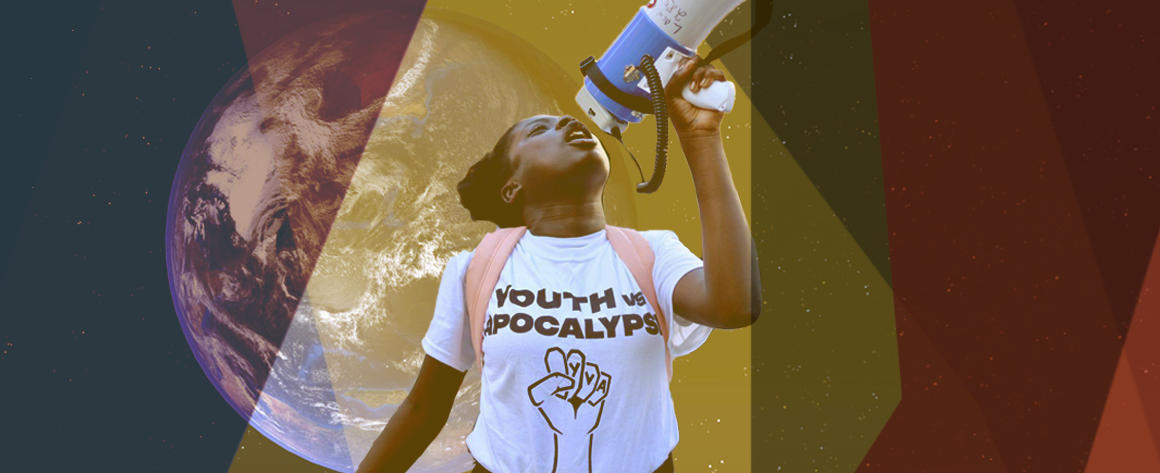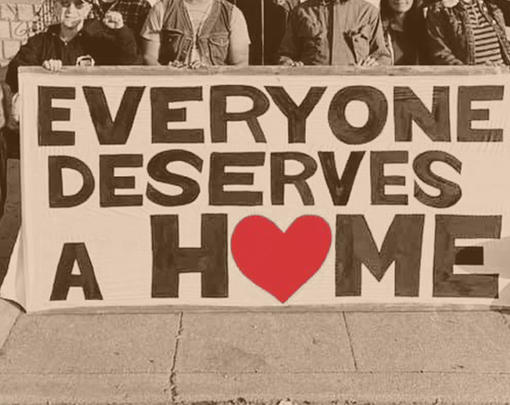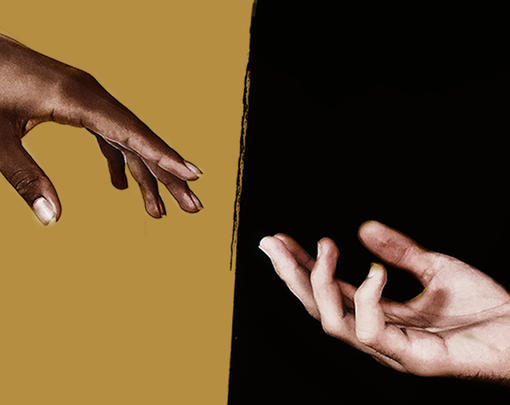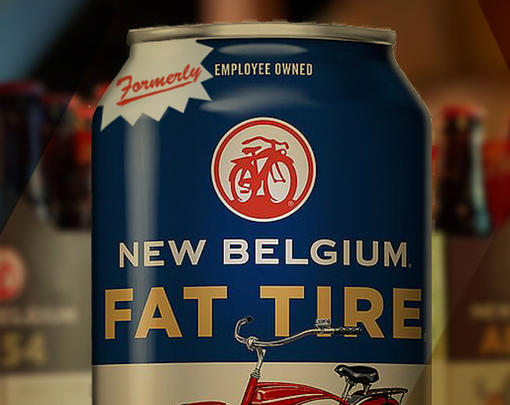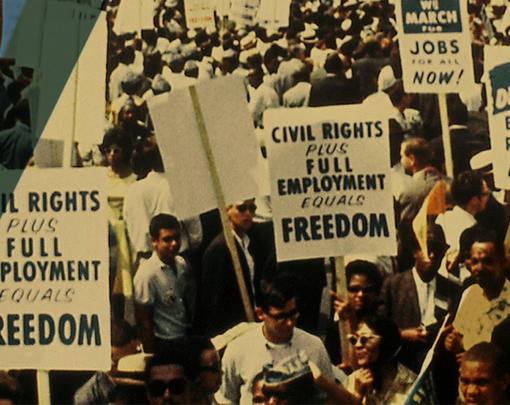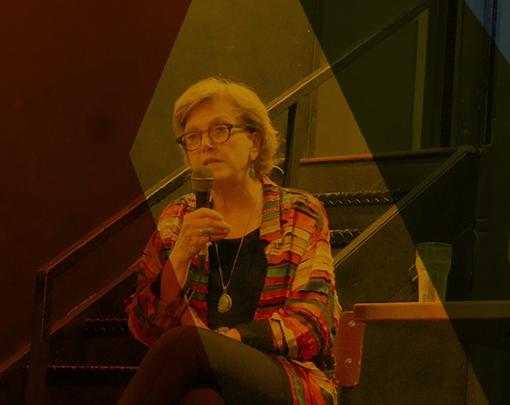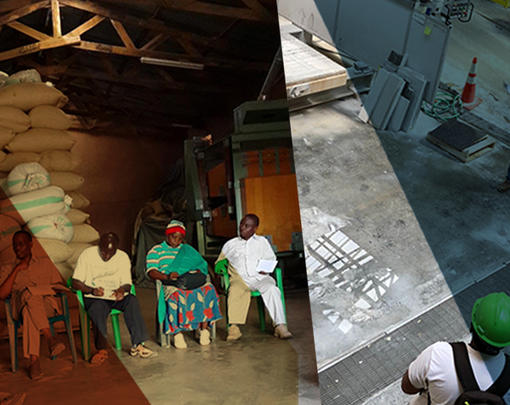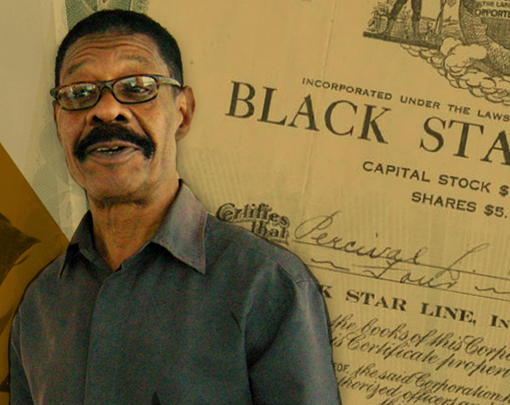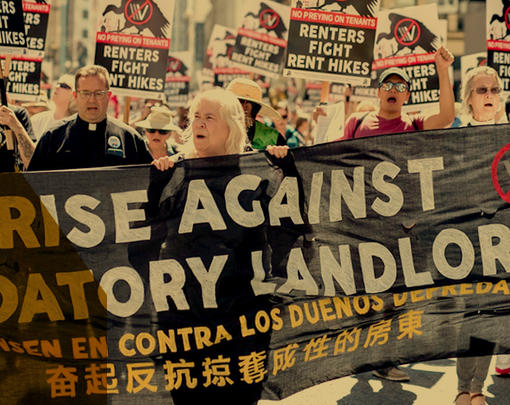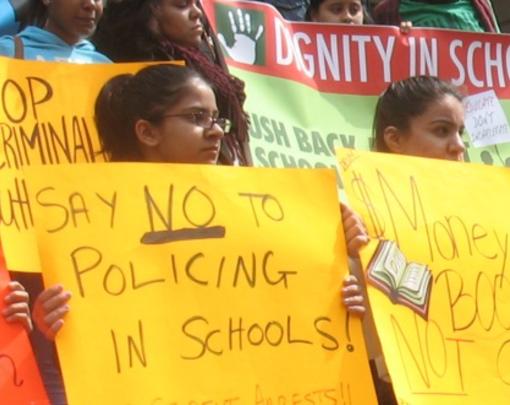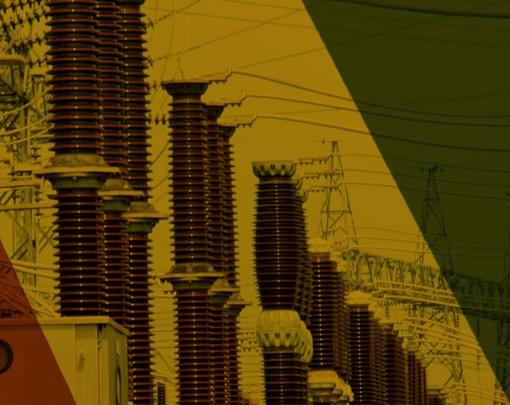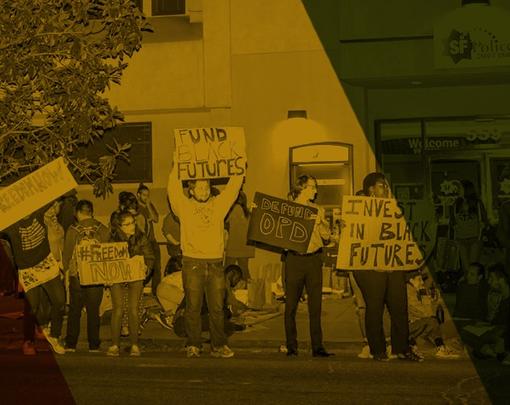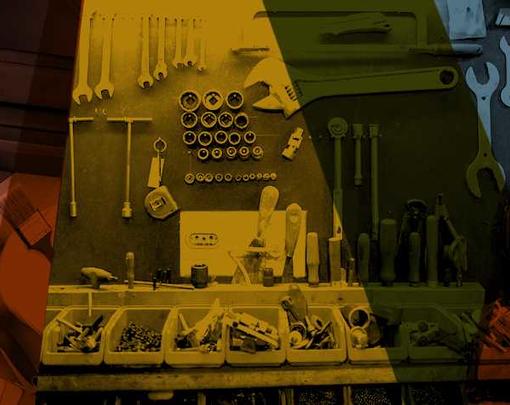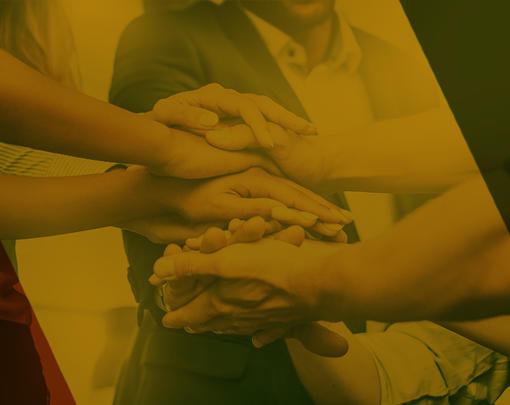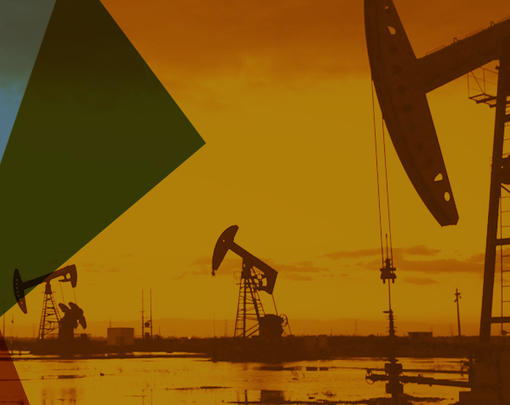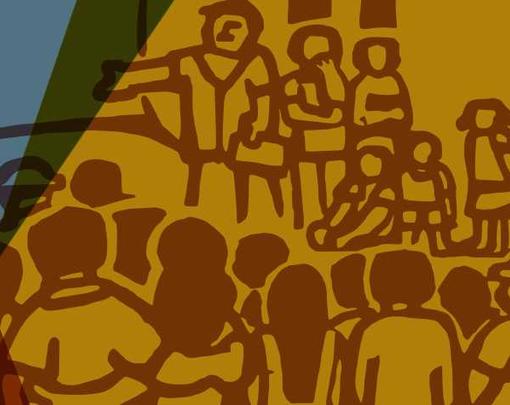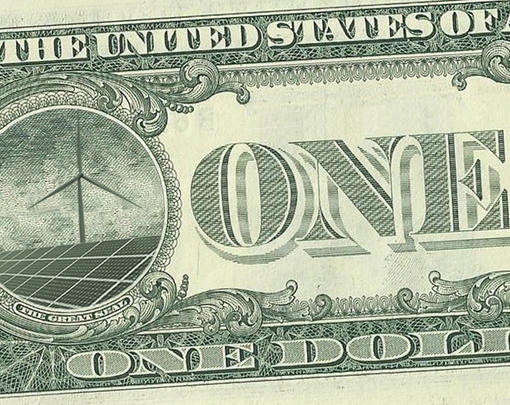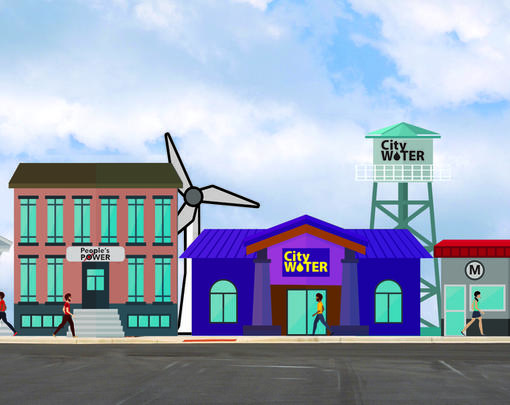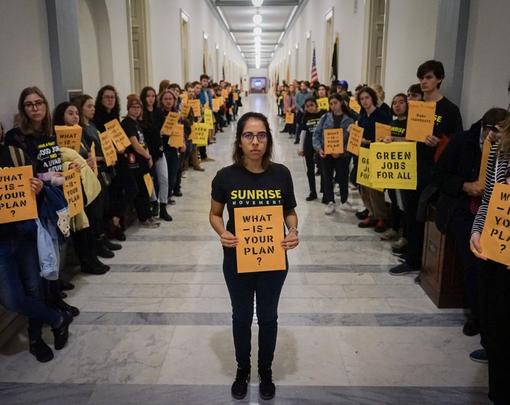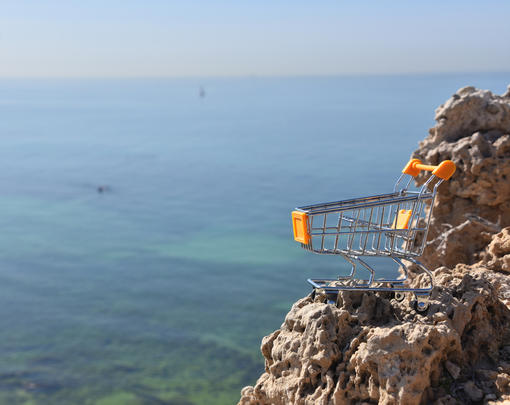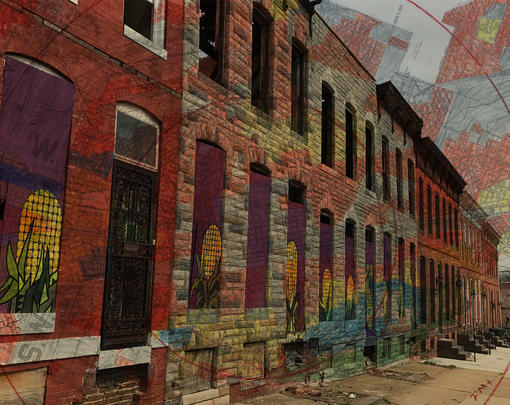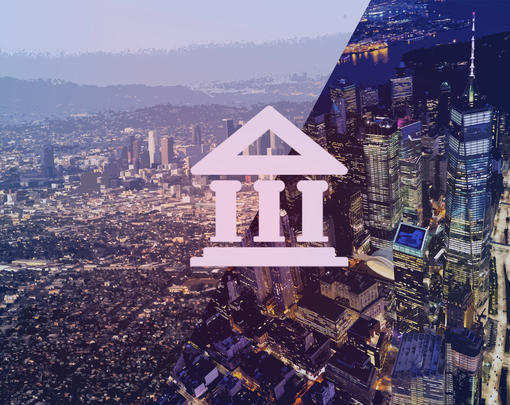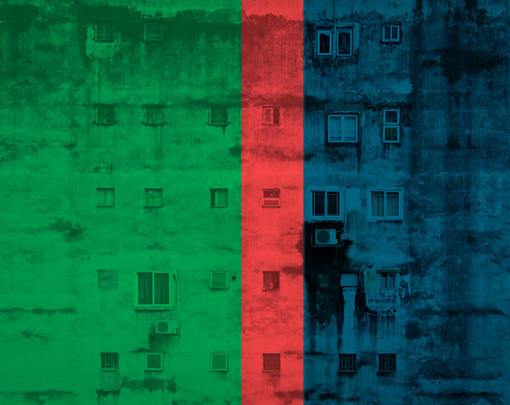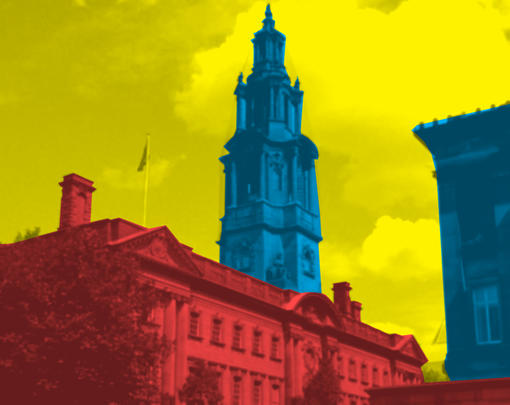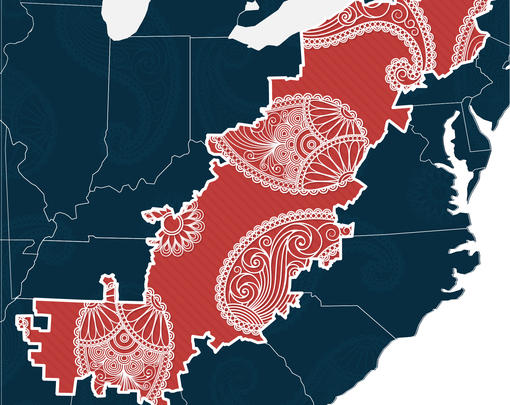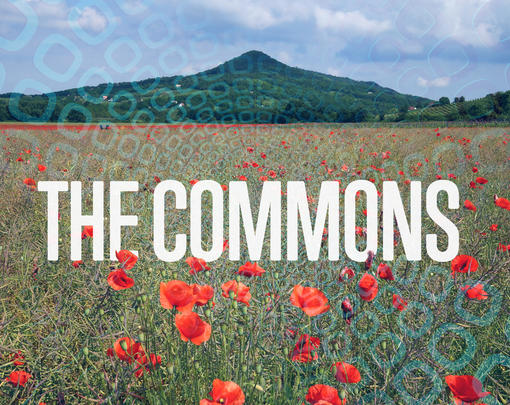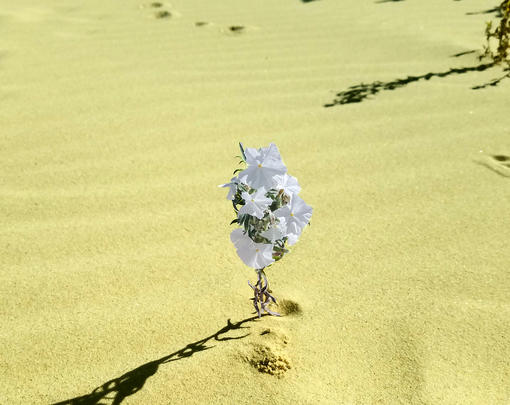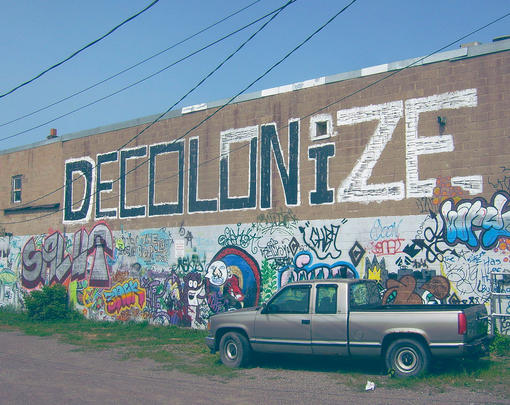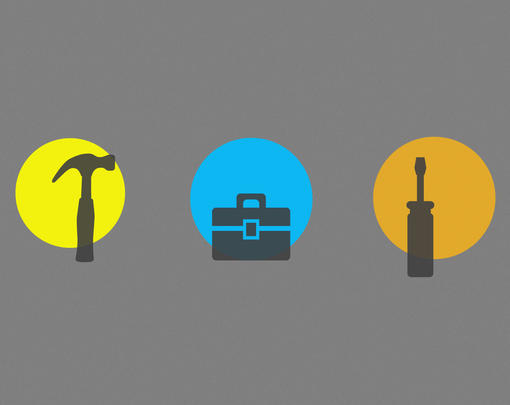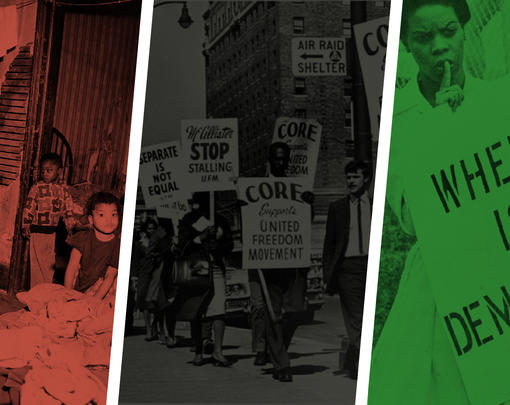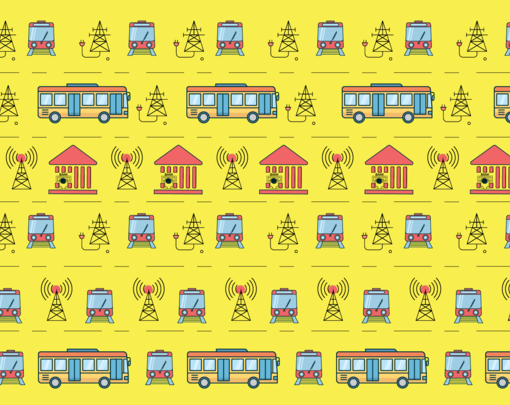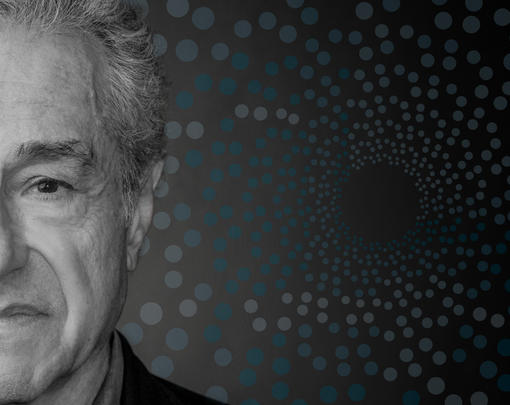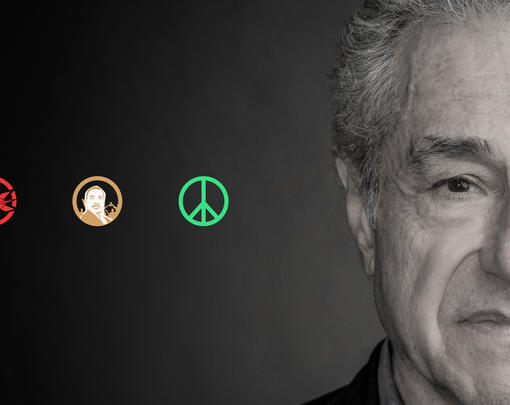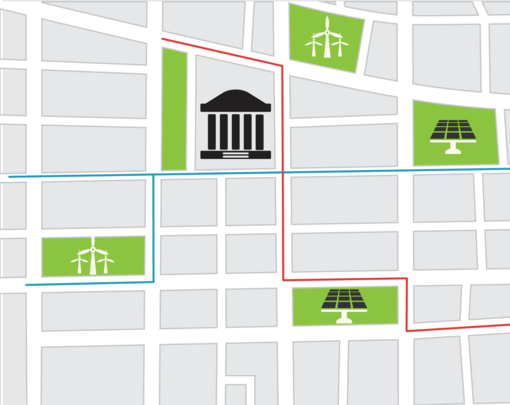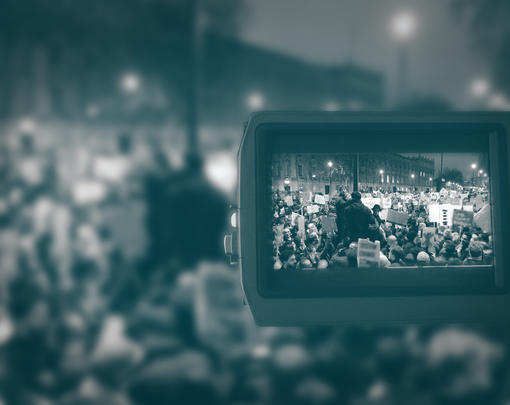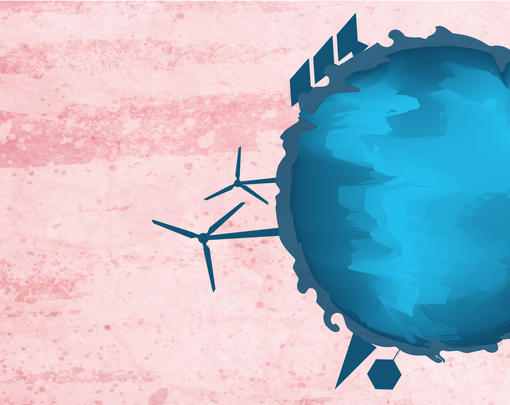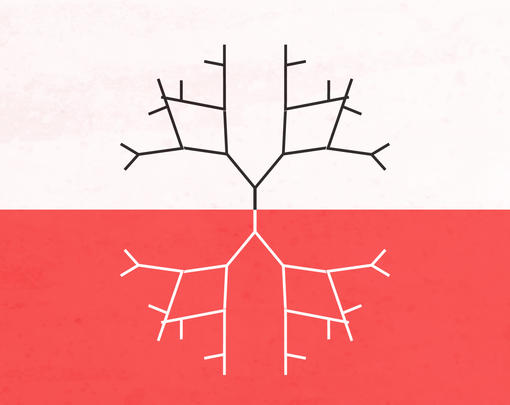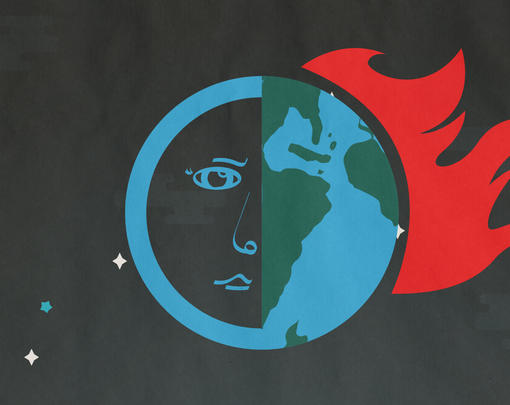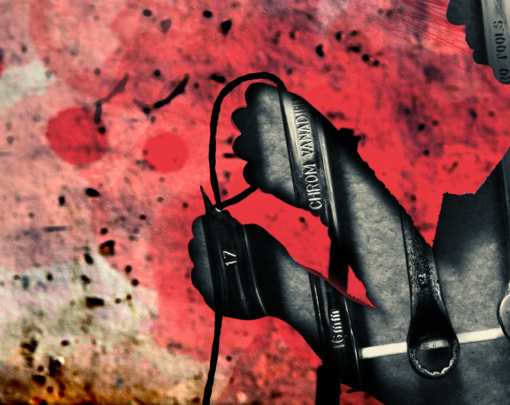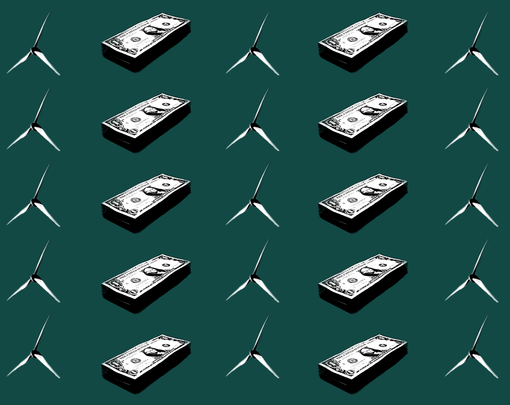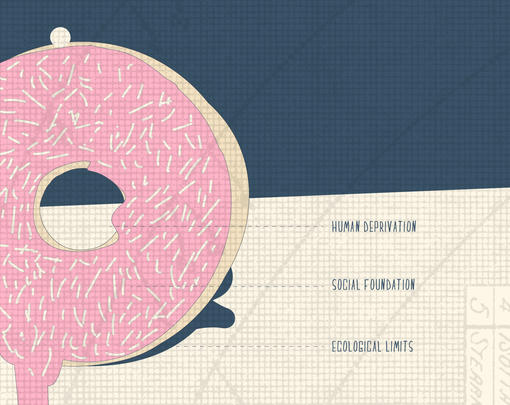For a new generation of climate activists, the 50th anniversary of Earth Day is not a day of celebration but a day of mobilization combined with a sober critique of why the ideals of the first Earth Day are still so far from being realized. Gus Speth, co-chair of The Next System Project, was beginning a long career as an environmental activist and leader on the first Earth Day. Dulce Arias is an 18-year-old leader in Youth vs. Apocalypse looking to play a pivotal role in the next 50 years of environmental activism. Together, they discuss what they have learned from the past 50 years and how to apply that knowledge to today’s climate crisis.
The Next System Podcast is available on iTunes, Soundcloud, Google Play, Stitcher Radio, Tune-In, and Spotify. You can also subscribe independently to our RSS feed here.
Isaiah J. Poole: On April 22, 1970, Wisconsin Senator Gaylord Nelson, a Democrat, and California representative Pete McCloskey, a Republican, served as the co-chairs of the first Earth Day. Both were inspired by the anti-Vietnam War movement and appalled by the mounting consequences of a corporate consumerism that operated without regard to the poisoning of our air, water, and land.
Most people would agree that we’ve come a long way in 50 years. We don’t have rivers on fire from chemicals dumped into them by companies as we did in Cleveland, Ohio back in 1969. You don’t hear people referring to Los Angeles as “smell-A” as they did before the 1970s, when the smog literally darkened the skies. The first Earth Day led to the creation of the United States Environmental Protection Agency, the passage of the Clean Air Act, the Clean Water Act, and the Endangered Species Acts.
And yet a new wave of climate activists are angry that it’s been 50 years, and the industrialized world has still brought us to the very precipice of climate catastrophe. We’ve been nibbling around the edges and taking small steps with each step facing massive resistance from corporate interests and right-wing ideologues who are more willing to sacrifice the future of the planet itself for an ill-gotten short-term gain.
That’s why many people will be marking the 50th anniversary of Earth Day with a climate strike. Because of the stay at home measures imposed during the COVID-19 pandemic, these strikes will take place online, but the intent is to make them as impactful as street demonstrations. As one of the organizations supporting the Earth Day Climate Strikes has said, we are prepared to do whatever is necessary to protect our futures. We’ll stop going to school, we’ll stop going to work. We refuse to participate in a society and economy that is actively destroying our generation’s chance at a livable future.
I’m Isaiah J. Poole, and on this edition of The Next System Podcast, you are going to hear from two people who are leaders in the climate movement, one who was alive to see the first Earth Day 50 years ago, and another who we hope will still be on the case for the Centennial Earth Day that will take place 50 years from now.
Gus Speth is a distinguished fellow at The Democracy Collaborative and co-chair of The Next System Project. He brings an extensive history in the environmental movement, including as founder and president of the World Resources Institute, chairman of the US Council on Environmental Quality in the Carter administration and co-founder of the National Resources Defense Council. Gus, welcome to The Next System Podcast.
Gus Speth: Well, it’s very good to be here, and it’s good to be on the line with Dulce, and talk through the generations so to speak. I think I’m almost old enough to be her grandfather. So, we cover quite a period,
Isaiah J. Poole: Well, let me introduce the listeners to Dulce Arias. She’s an 18-year-old youth climate justice activist and organizer in the Bay Area. She’s been a climate leader participating in demonstrations and actions in California, and has been doing graphics for the organization called Youth Vs. Apocalypse, which is a youth-led environmental nonprofit organization. She’s currently attending De Anza Community College in Cupertino, California. Dulce, welcome to the podcast.
Dulce Arias: Thank you so much for having me.
Isaiah J. Poole: I want to go first to Gus, and—for the listeners who we’re not here for the first Earth Day—what do you remember of that, and what were you doing at the time?
Gus Speth: Well, thank you. I think we were, two years before Earth Day, we had started the idea of having a public interest environmental law firm, and we worked together, and so by the time Earth Day came around in April 1970, we were busy launching what eventually became the Natural Resources Defense Council. It’s now much larger than it was when we started it, but that’s what I was doing. We were trying to raise the funds to launch the Natural Resources Defense Council in 1970 and we did.
But what I remember most vividly about that moment is walking on the mall in DC, for their coming together, and the big event, and with my one-year-old daughter and wife, and we were traipsing around, and it was a celebratory moment. Everyone was optimistic, on a real high about the momentum that we saw coming together at that time. And there were Earth Day celebrations all across the country, and some of them were quite demonstrative. The one in New Haven had as part of it a bashing of an automobile with sledgehammers to protest the air pollution.
And so, it was a moment of high hopes that we could really conquer this set of environmental issues. Was climate prominent among those issues at the time? No. I can tell you when I think it became a prominent issue in public policy, but it was not at that moment. But we had, as you mentioned, very quickly been able to help Congress pass the Clean Air Act, the Clean Water Act, and we saw our job really particularly as young lawyers as getting those acts enforced in an admirable, efficient and quick way. And that’s what we set about doing with the Natural Resources Defense Council.
Isaiah J. Poole: Dulce, when you look at the work of groups like the National Resources Defense Council, and some of the other environmental organizations, what is your assessment of what they’ve done so far?
Dulce Arias: Well, the organizations that I know about, as I knew more about the climate crisis, and how it impacts different communities. I really looked at the different organizations that are youth-led and those are the ones that have been inspiring me to take action. Organizing has just been new to me for the past year. I didn’t know anything about organizing until I joined the organization that I’m part of right now. But hearing about Gus’s story, and the organizations that he’s been part of, I just think it’s really cool that you were able to make it so that we could have an Earth Day today and I have so much respect for that.
And also, like you said before, I heard that it wasn’t necessarily about climate change but about the people currently suffering with the air pollution. And I think, right now I’m living in California and not much has changed. And it inspires me because I feel like we have so much potential as people right now because right now more people are starting to get the gist that we are in a crisis, and that in order to try to solve this problem we have to unite together, and different organizations are becoming a coalition together and fighting together to pass laws that are going to be beneficial for people in the frontline communities.
Isaiah J. Poole: Dulce, a lot of your friends, a lot of the people you work alongside of, I get the sense that a lot of them are very frustrated with the adults who have done a lot of good things but still are leaving you in a situation where you feel like you have to fight for your life.
Dulce Arias: Yeah. Well, most of the frustration that we have towards adults is mostly to those in power who could have made better laws, but they don’t because they constantly put profit over the lives of people, and that’s what frustrates us the most. But I think we’re always looking for support from the adults right now. And our frustration is not with those who’ve been fighting for climate justice for a long time, but rather those who are responsible for making laws that are so unjust that have led us to the point where we are today.
Gus Speth: Dulce, you’re very generous to the older generation here. I think that your generation and the frustration and even anger that I saw on September 20th with the big strike which we participated in was entirely justified. I’m angry and frustrated with myself, and I think that you’re right to put the finger not on so much on those who’ve tried, although we’ve made some big mistakes, and I could enumerate them, but the great power of the fossil fuel industry and the corporate control of our politics.
I think you’re also right to link the climate issue to other things because the social justice issues and the environmental sustainability issues, and the consumer issues, and other great the immigration justice issues, these issues all arise and fall together. And one of the failings of my generation in the environmental area has been the failure to form tight alliances with other groups who really, in the end, have the same cause and rise and fall together. We haven’t done enough to build those alliances.
Dulce Arias: Well, based on my personal experience, I feel like BIPOC (Black, Indigenous and people of color) are approaching this fight for climate justice with … I don’t know because as Gus mentioned, everything is intersectional. We see in our everyday lives, in our communities how the root of the climate crisis is impacting us right now. For example, our friends in Richmond, California and other places in Los Angeles county where we have oil and gas infrastructures located in communities that predominantly are low-income communities and communities of color. And I feel like we’re approaching this because we’re in the front lines, and sometimes we don’t have another option other than to fight back on to the systems that created this problem in the first place. So yeah, my personal experience is I joined the movement because I saw how my community was going to be impacted firsthand by climate change, and I instantly felt the responsibility to do something about it.
Isaiah J. Poole: Tell me more about that. Tell me about your neighborhood and how you see it affected by climate change.
Dulce Arias: I live in a neighborhood that right now is pretty gentrified because of all the tech industry here in the Bay area. But most of my community is a low-income community and an immigrant community. And right now what I see is that a lot of people are displaced by climate change from South America, and are currently in detention camps. And I feel like, that is definitely not fair and it’s inhumane, and that like literally all the people who are not responsible for climate change or who [don’t] contribute the most to climate change have the worst. And I don’t think it’s fair because the United States is one of the main polluters and therefore they shouldn’t be treating people that come to this country for a safe haven the way they do, especially because historically this land was stolen, and people in migrant detention didn’t come from across the sea, they were in this land already. To add on, my community is one of the most impacted because when there are forest fires or climate catastrophes, since we’re low-income, we don’t really have the means to get back to our feet, and we don’t have the means to buy a plane ticket or travel somewhere else just because we don’t have the money and the resources necessarily for that. And then when there’s asthma and other health problems with all this air pollution from this oil and gas and coal infrastructures, and the water that we drink, most of us do not have healthcare, therefore we cannot go to the hospital whenever we want. And sometimes we can’t even, like my family can’t, my parents and my uncles and my aunts can’t take sick days because they depend on every day that they go to work the money that they make from that day.
Gus Speth: Well, now all of that is crashing into the coronavirus crisis.
Dulce Arias: Yeah, definitely.
Gus Speth: The things that you listed make the people much more vulnerable to this coronavirus, and what it’s going to do to our society.
Isaiah J. Poole: I’m going to roll back, Dulce, to something you said a couple of minutes ago, and you talked about people who are migrating into the United States already because of climate change in their home countries.
Dulce Arias: To talk a little bit more about that, many countries in South America right now are facing a drought. And with the drought, there’s less water and food scarcity. There’s a lot of tension between people, and honestly, nobody wants to leave their homelands, because people have such a connection with their lands. But the fact is that they have to move because they don’t have food, because they cannot stay in a place where the people cannot eat. A lot of people come to the United States to try to have a better life, and to try to just survive, for survival. But right now that’s not—the government is not allowing that.
Isaiah J. Poole: I think it’s important to underscore that because we have an immigration policy that is based on this notion that there are outsiders invading the country to take advantage of our resources when there are in fact people escaping from very bad situations that we as a country helped to create, and are trying to survive.
Dulce Arias: This whole country depends on a lot of immigrant workers. And like right now my uncles and aunts are in Washington, they’re working in the fields right now amidst coronavirus, and they can’t take any sick days. Right now they’re working in the fields, and people depend on those vegetables and produce that they’re the ones growing.
Isaiah J. Poole: Gus, what would you do if you had an opportunity to go back in time and talk to your younger self? What would you say to your younger self right now?
Gus Speth: Well, I talked to that guy a lot, and I think the thing we had in the ’70s, this is the ancient history, but in the ‘70s we had great success in implementing the Clean Air Act and the Clean Water Act and cleaning up some of the more obvious things that you mentioned at the outset. But in 1980, Reagan was elected and he was elected running against the environment, and very explicitly campaigning against what they were calling environmental extremists and radicals even back then, and we did not adjust to that change. We kept doing the same things we were doing in the ‘70s by and large. We should have gotten more political. We should have formed alliances with young people, with immigration groups, with consumer groups and social justice groups of many types, and broaden this coalition because we should have realized that at that point it was political.
We had burned the capital that we had in 1970 at Earth Day, and we were down to the point where we needed to develop new alliances, new approaches, new politics, and really take on the system in a deeper way. The system had reared its head and had come back strong against us and elected Reagan, and things have never been the same since. And we should have come to our senses and begun to see that this problem was systemic. It was built into the nature of our economy and our politics, and both needed to be changed in fundamental ways if we were going to succeed. And we didn’t come to those realizations, and I didn’t come to those realizations back then.
In the Carter administration, we began to understand that the climate was a huge issue. We used to put out in, I was in the government then, we put out three reports, maybe four dealing with the climate issue. This was in the late ’70s. We were seized with the issue back then, but when Reagan came in, all that died, and we are now faced with an administration much worse than the Reagan administration on any front. The administration is just devoted to destroying every step that’s been taken to deal with the climate issue, to deal with immigrant justice, and really to roll back, not just roll back, but in a mean and vicious way to destroy so much of the accomplishments of the past 50 years.
And so, we didn’t get political, we didn’t form those alliances, we didn’t build a powerful political force and a powerful movement to deal with the structural systemic problems in our politics and in our society. That’s what I would change in the fundamental way; we should have considered what the Reagan election campaign and its implications and all that he said about doing really meant. And I think we tended to go, “We’ve been successful in the ’70s,” and that tended to perpetuate the approaches that we had used in the ‘70s. That would be one of my messages anyhow to my younger self.
Isaiah J. Poole: Dulce, you will be participating in the climate strikes as part of Youth Vs. Apocalypse. Talk to us about how this climate strike will work, and how people can participate.
Dulce Arias: We are a part of a coalition with different organizers all around the country, and we all decided that for Earth Day we were going to have an earth week of action, and it’s like a three-day type of thing. And on the first day, which is Earth Day on April 22nd, we were going to focus it on a general strike, and then the next day, April 23rd, which is Thursday, we are going to focus it on divestment. And then the [third] day, which is April 24th, Friday, we are going to focus it on voting.
But for my organization on Wednesday, April 22nd, our targets are all aspects of the Trump administration, including the EPA to the military-industrial complex to corporate bailouts. And we are, since we have to move everything virtually, we’re going to use the hashtags #ResistTrumpocalypse for April, and then for Thursday our targets are financial institutions that profit from social and climate destruction, including CalSTRS. CalSTRS is a teacher pension fund. It’s a public school pension fund from kindergarten to community college. And right now, they’re investing about $6 billion into the fossil fuel industry. We’re going to target them and also using hashtags #DivestFromDestruction. #InvestInFrontlineSolutions, and another hashtag is #StopTheMoneyPipeline. For Friday, April 24th we don’t have any targets but we’re going to use this day for solidarity and the hashtag for that day is #SolidarityForSurvival.
And we have different types of actions going on in regards to these days. And one of them is a national livestream and local livestream that people around the country are going to be involved with. And to get involved with that, you could just go to earthdaylive2020.org, and you could just RSVP, and it will be a three-day type of livestream.
And then also my organization right now, amidst everything that we’re going through, we’re using the music as a way of healing. Together we wrote a song called “No One is Disposable” that we are planning to publish on Earth Day or the Friday of Earth Day. And it was so cool because we went on Zoom calls and had different writing prompts, and together we wrote this pretty cool song without having to meet each other in person. And I’m pretty excited for that.
Gus Speth: That will be great, all those plans are very exciting. I was so gratified with the leadership that youth has been giving on this issue of climate justice and social justice, and the Green New Deal and other initiatives. I’ve been working for a couple of years with the children’s climate lawsuit, the Juliana case, and that in a way was an early effort by young people to get this ball rolling, and now this is our hope really that youth will be able to really drive the changes, and those events that you’ve got planned are really great.
Dulce Arias: Yeah. I’m so happy you mentioned Juliana vs. Government, because I think that was one of the first things that made me want to take action and believe that I could, because I was young and I always felt I didn’t have any space to share my thoughts and create change. But then after learning about what the Juliana vs. Government youth plaintiffs were doing, it inspired me because, I don’t know, it’s just like a very diverse group, and I felt super represented in the movement. I felt welcome. I researched on how to get involved and then I found different youth-led climate justice groups, and found my way to Youth vs. Apocalypse, which I’m currently part of.
Gus Speth: That is a great story, that will warm the hearts of the people that I’ve been working with at Our Children’s Trust, which is the group that again, pushing this lawsuit now five years ago. And it’s really great that they’re still going, and it really is a test now. I mean, what we’ve seen on climate is the failure of the Congress, as you mentioned. We’ve seen the failure of administration one after another. The Republicans have been a lot worse than the Democrats, but the Democrats haven’t been great, to say the least, on this issue. And now we are facing the issue of whether the judicial system, the third branch of government, is going to step into this breach, or whether they’re going to default, too. So, it’s still in the courts and it’s still before the Ninth Circuit Court of Appeals, and we’re still hopeful that the courts will rise to this moment.
Isaiah J. Poole: I want to give both of you a chance to give some final thoughts for people like me who read the headlines and really get despondent because we’re hurtling toward catastrophe and there’s a lot of energy, there’s a lot of action, a lot of people are concerned, but it just feels like the forces that are pushing against our efforts to move forward to counter a climate change and to build a more just and sustainable future, those forces seem overwhelming. I want to ask each of you, starting with Gus, what gives you hope in this moment?
Gus Speth: Well before this damnable virus preempted— well, it not only killed and will kill a lot of people and inflict great injury on people’s health, but it also has dulled the momentum that we had going on the climate issue. There had been some real hope building, much of it around the Green New Deal. Most of the Democratic candidates had pretty strong climate platforms, and we need now to be sure that that Vice President Biden does. So that was hopeful and it was happening, and the great irony in a way, a tragedy really, is that a lot of the things that people are saying we now need to do, and some of which are actually being done about the virus crisis are the very things that environmental and other justice advocates had been advocating on the climate issue. We need to really make it a national emergency in a way that we have made the virus a national emergency. I think if we can get beyond this damnable virus, we can recapture some of that momentum that was present in the Green New Deal launch and other things.
I think also a lot’s going on on the ground around the country. In the shadows, people aren’t, the big world is not looking, but there’s a new world being born in local communities. And so, the public banking movement, the public ownership, the private worker-ownership movement, and on and on, taking back over the rural electric co ops and putting the real owners in charge, on and on. There are lots of important things that are happening, and the Black Lives Matter and social justice concerns. We need to, we’re getting things moving, and we need to recapture that. But a lot of it is happening at the local level where no one is looking. And so, we have to take some hope in that.
Isaiah J. Poole: Dulce, you get the last word. What should keep us hopeful?
Dulce Arias: Well, definitely our community and our people because we experience hardships together, and it’s always us who takes us out from the hole, I guess you could say. When there’s forest fires, our community showed up for each other with mutual aid. Right now, the coronavirus, our community showing up for each other with mutual aid. And I feel, even though these are dark times, and it’s easy to lose hope and there’s moments when that happens, at the end of the day, they’re just moments because our community is just self-resilient and we’re going to get through this, and I feel right now we could take this opportunity to move forward, not backward, and unite in order to have the change that we would want.
Isaiah J. Poole: Well, I want to thank Gus Speth for all of the work that he’s done, all of these decades to fight for a more livable world. And thank you, Dulce Arias, for taking the fight into the future.
Dulce Arias: Thank you.
Gus Speth: You are the hope and the future, and we should be rallying behind the young people of our country and the world before it’s too late.
Dulce Arias: Thank you so much, both of you for letting me be part of this conversation. And Gus, thank you for leading the way.
Isaiah J. Poole: And for The Next System Project. I am Isaiah J. Poole.
The Next System Podcast is produced by Luis Garcia de la Cadena. Previous episodes and transcripts are available at thenextsystem.org/podcast. The theme song is “A New Start” by Zoe Blade. Find her music at zoeblade.com.


